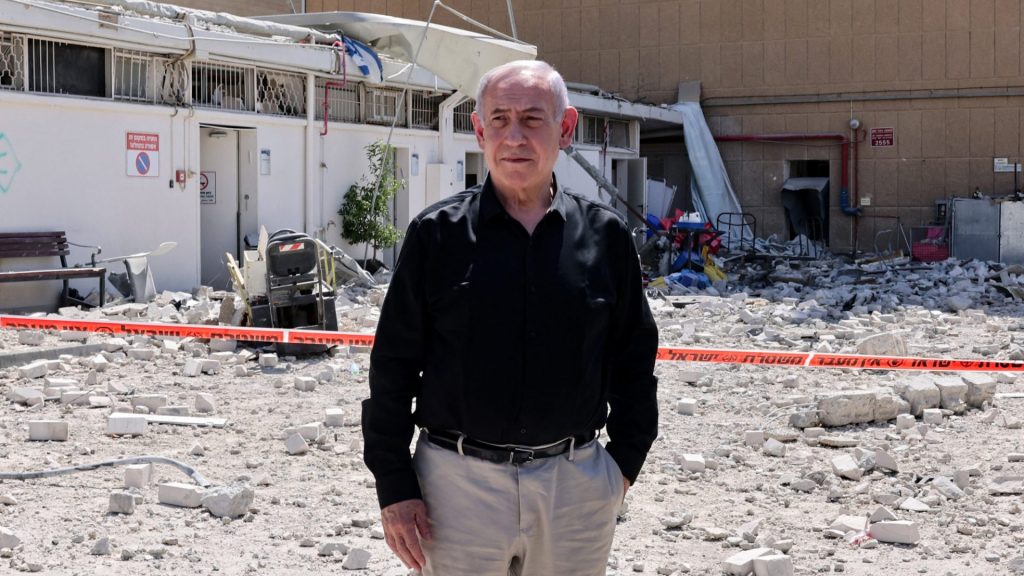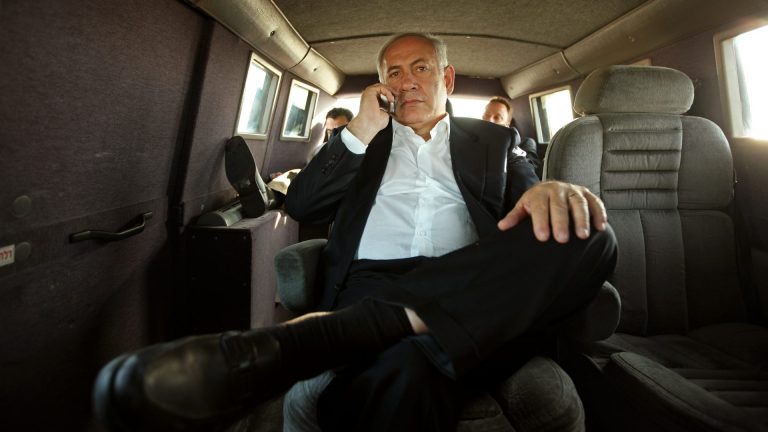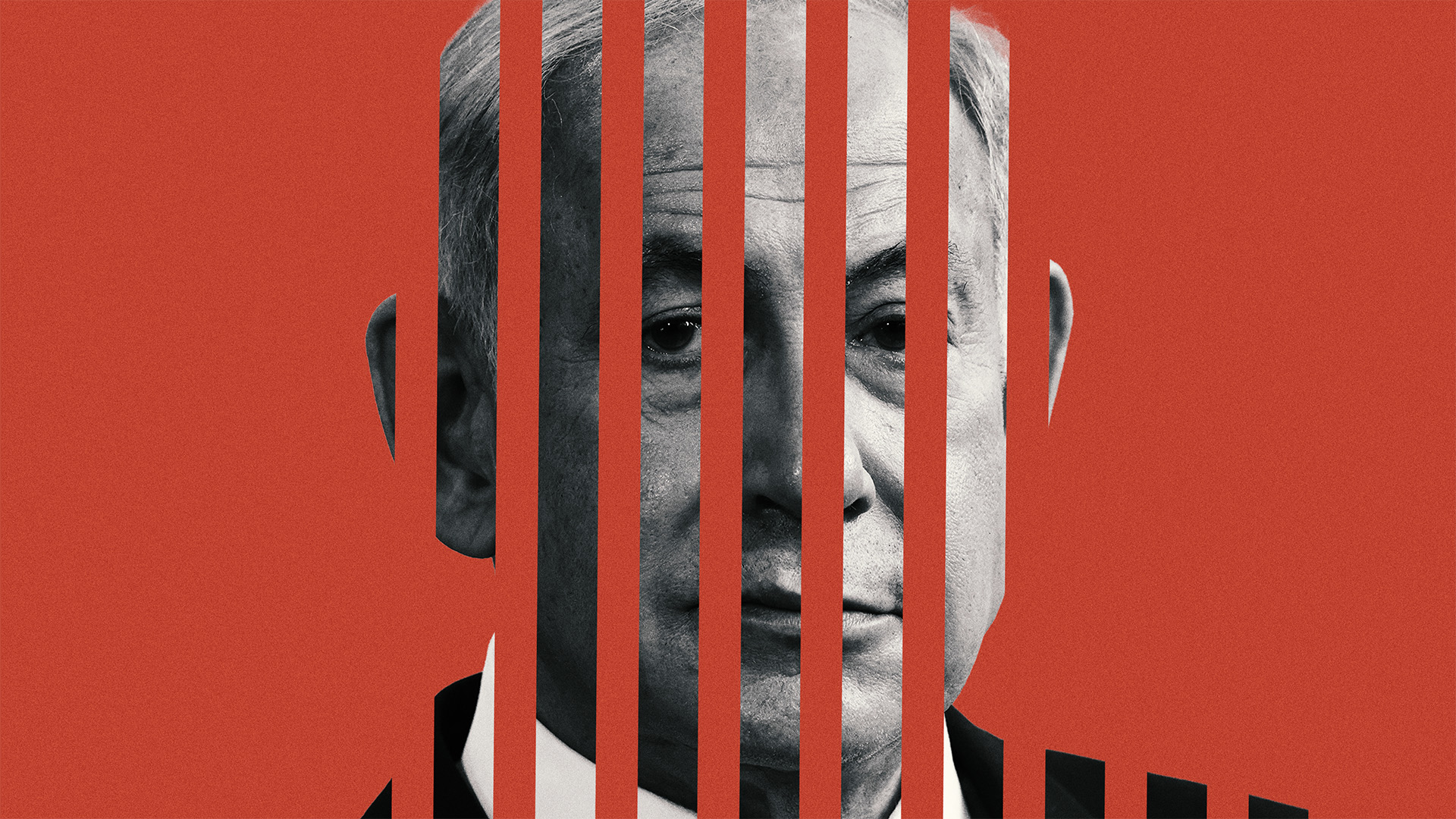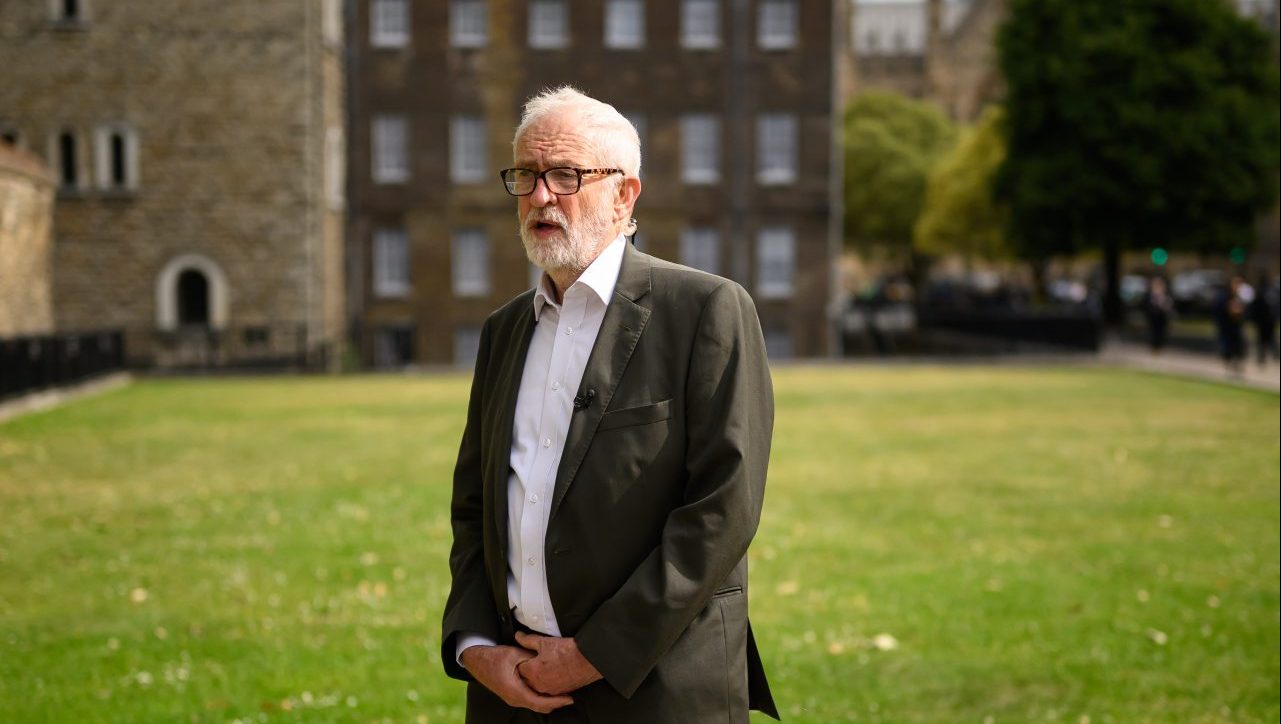If the Israeli prime minister Benjamin Netanyahu fears anything, it is the clank of a prison door closing behind him. This is something many people in his orbit have said: former friends and staff, political rivals, journalists and more. Netanyahu sees jail in his future, and he would do almost anything to avoid it.
At first, that might seem impossible to square with how he has led Israel in recent years. Even before October 7, Netanyahu’s coalition with extreme right wingers was supporting violent settlers and relocating military forces to support them. After the vile attacks by Hamas, Netanyahu’s government had the world’s sympathy for a time, until the sheer disproportionality of its retribution became impossible for even allies to defend.
Over time, it has become impossible to describe Netanyahu’s actions as anything other than a series of war crimes. Evidence has emerged time and again of the deliberate targeting of civilians and journalists. Netanyahu’s ministers openly talk about ethnically cleansing Gaza of Palestinians, permanently – genocidal talk. He is engaged in an open campaign to starve Gaza, still done supposedly in the cause of freeing hostages – but few even within Israel still believe that.
Almost two years after October 7, at least 60,000 Palestinians are dead, according to figures produced by the Hamas-run ministry of health in Gaza. Almost the entire two million strong population of the strip has been displaced. More than 90% of housing has been damaged or demolished, alongside two thirds of other buildings. Any prospect of normal life has been destroyed, perhaps for a generation.
Netanyahu’s actions have been sufficiently extreme that the International Criminal Court has issued a warrant for his arrest. If it’s true that Netanyahu fears prison so much, how can we explain his flagrant breaches of international law? On the face of it, they look like the reverse – a man who cares not at all about such things.
One explanation is that it is not international law that Benjamin Netanyahu fears, but Israeli law. For the last decade, Netanyahu’s life has been shaped by an ongoing corruption investigation into gifts he received while in office, and which were also given to his wife, Sara. As that case has mounted against him, the prospect of conviction has become ever more real.
The same cannot be said of international courts. The ICC arrest warrant will restrict where Netanyahu can travel, but the chances of it leading to more serious consequences than that are virtually nil. Since the second world war, only five heads of government or state have ever been convicted in international courts. All of them had lost wars or civil wars, none were US allies, and the process often took decades. The 75-year-old Netanyahu likely has little to fear on this front.

Domestic courts are another story. Israel takes personal misconduct in political office seriously, and has a track record of jailing its politicians. In 2014, former prime minister Ehud Olmert was sentenced to six years in prison for accepting gifts in return for political favours (he eventually served 16 months behind bars). In 2016, prosecutors opened a very similar investigation into Netanyahu – but with even higher sums at stake. He is not wrong to fear conviction and imprisonment.
Israel does not grant immunity to its premiers, but they have amazing power while in office to delay and frustrate criminal investigations against themselves, particularly during national emergencies. Netanyahu’s corruption trial began in 2020 and his cross-examination only began in June of this year. The case continues – but macabre as it sounds, Netanyahu’s concerns over gifts of champagne and cigars could explain all too much of Israel’s dark recent history.
The accusations against Benjamin and Sara Netanyahu are almost shockingly straightforward: this is not some elaborate conspiracy that is difficult to understand. While Benjamin was prime minister, his staff and his wife would demand extravagant gifts from their ultra-rich friends, and they would get them. Most of the gifts took the form of champagne, cigars, and jewellery – and the total value of those received is alleged to exceed $280,000.
We have unprecedented insight on the interrogations of the Netanyahus and those alleged to have given them these “gifts” thanks to a documentary by Alexis Bloom, The Bibi Files. Bloom and her executive producer Alex Gibney were given the full archive of police interrogation videos from the case – leading to a documentary in which nervous billionaires eventually tell all to the police.
Among those gift-givers were the American-Israeli casino magnate – and Republican Party megadonor – Sheldon Adelson and his wife Miriam. “Sara showed me a necklace once and told me, Arnon bought it for me. It’s Tiffany & Co,” she tells the police. “And she hinted she’d be happy if I got her one too. I told her ‘I have a casino licence. I can’t do anything that’s illegal. It doesn’t look good’.”
“What can I say? If this comes out, I’m dead,” she says, almost to herself, elsewhere in the interrogation.
The “Arnon” referred to by Adelson is Arnon Milchan, a billionaire businessman and film producer known to be a close friend of both Netanyahus and widely spoken of as a fixer or a conduit to the prime minister. While the Adelsons’ “gifts” to their friends are said to have included champagne worth “hundreds of dollars” a bottle, and boxes of cigars worth $1,000 each, Milchan bought jewellery for Sara – including a $42,000 diamond bracelet.

In his police interview, Milchan says that Bibi personally approved the ultra-high-value gifts. “Cigars and champagne, it’s OK, it’s small things, but jewellery – I wanted the prime minister to tell me personally that it was OK… in a legal sense,” he tells police. “Bibi approved it was legal. A friend can give a gift to a friend.”
Netanyahu shrugged off the story to police, while also denying he knew any details about the value of the gifts. “I received things from close friends, from close acquaintances, like cigars and things like that,” he said. “We work 18 hours a day, we have no pleasures in life”. Contradicting his friend, he claimed to have no knowledge of the bracelet.
The prime minister, characteristically, went on the attack when pressed for details by his interrogators. “You think I count the bottles?” he asked rhetorically at one stage, saying he was instead busy counting the missiles flying into Israel from its adversaries. Netanyahu strenuously denied ever discussing “business” with his friend Milchan, but is accused of having pressed his finance minister to extend a tax break for him by at least four years.
Nimrod Novik, a former adviser to Israeli ex-prime minister and president Shimon Peres, pithily summarised the case. “Government officials are not allowed to take gifts. Period. This is corruption,” he said. “We sent a president, we sent a minister of finance, to prison for violating that principle, that nobody is above the law.”
Suggested Reading


Gary Lineker: ‘I’m not antisemitic. I’m anti the killing of children’
Notably, though, those convictions have come after the politicians concerned have been forced out of office. Even without formal immunity, there is much that a sitting prime minister can do to frustrate a prosecution, or to delay and defer a punishment if it goes against him.
Bibi’s continued freedom is, then, arguably tied to his political survival, which has motivated the coalition with which he’s governing and his insistence on staying in power. This is a lens that sheds light on Netanyahu’s behaviour both before and after the October 7 attacks – particularly his willingness to enter a coalition with extreme right politicians he had spent his career up to that point rejecting.
A politician focused on their legacy, or their political principles, might have decided not to enter that coalition – deciding it was better to be out of office than to ally with extremists. Someone who believes their choices are the prime minister’s residence or a jail cell does not have that luxury.
Netanyahu will claim his reasoning was not nearly so self-serving – and as a species we are excellent at convincing ourselves that what is best for us is also right morally – but it would be hard for it not to have factored into his reasoning.
There are outstanding questions as to whether the priorities of that governing coalition left Israel exposed on October 7, and factored into why troops were so surprised by the invasion.
Much as with 9/11 in the USA, there is already considerable evidence that elements of Israeli intelligence had warnings that an attack was likely, but these were not properly passed up the chain. In the run-up to October 7, troops had been redeployed away from the Gaza border towards the West Bank, due to security flare-ups caused in settlements, and by inflamed tensions from provocative visits to Temple Mount by the extremist security minister Itamar Ben-Gvir.
But perhaps the most damning indictment of Netanyahu’s gross miscalculations in the run-up to October 7 comes from reporting in the New York Times, which revealed that Netanyahu personally gave Qatar his approval to continue funding Hamas, based on the mistaken strategic calculus that Hamas would police Gaza without launching any serious strikes on Israel. Propping up Hamas in Gaza while the Palestinian authority ruled the West Bank also gave Netanyahu political cover for not engaging in peace process talks while Palestinian rule was divided – which allowed him to hold his political coalition together.
October 7, 2023 was not the first time Israeli security services spectacularly failed to anticipate an attack on the nation. Before that date, the most shocking breach of Israel’s borders had occurred during what became known as the Yom Kippur War – when Egypt and Syria launched an offensive against Israel on two separate fronts on October 6, 1973, catching its political and military leadership entirely off guard.
Israel eventually mustered a counterattack and is generally regarded as the victor of the short conflict, for which the UN was able to broker a ceasefire within a month or so. But the nation was shaken to its core, not least because some 2-3,000 people died, and the public demanded answers as to what had gone wrong.
Those answers came relatively quickly. A national commission of inquiry was set up by November 1973, and it had presented its first results by the following April, with another report in July. The final report was wrapped up in January 1975.
Suggested Reading

The film that put Netanyahu in court
Had Benjamin Netanyahu set up an inquiry on a similar timescale, it would have reported long ago. Instead, it has not yet even begun its work – because Netanyahu has said it should not even begin until after a permanent ceasefire or peace deal has been agreed.
It is difficult not to look at this cynically, especially when you look at the historical precedent. Golda Meir was prime minister during the Yom Kippur War, and though she was not personally blamed for the intelligence and operational failings that led to the conflict, she resigned within a week of the inquiry’s first preliminary report.
Even if it turned up no new information than what has already been publicly reported, any inquiry is clearly going to raise some deeply uncomfortable questions for Benjamin Netanyahu, which would threaten his political survival – and potentially, in turn, his continued freedom.
By tying the launch of an inquiry to the end of conflict, Netanyahu has given people across the world reason to question his motivations. Even if they were entirely pure and as stated, he has a visible conflict of interest, and people will question that. Netanyahu and his allies regularly attack the motivations of anyone who flags these conflicts – but it is his own political decisions that have created them.
That indignation might be more credible if it was less transparent: it is the same tactic Netanyahu deployed so easily with police in his interrogation interviews. How dare they ask him about something so trivial as a few gifts from friends – also known as corruption and misconduct in high public office – when he’s trying to defend the nation?
In the privacy of his police interrogation, Netanyahu used the violence of attacks against Israel to shield himself from the consequences of his own conduct. In the public domain, Netanyahu and his allies similarly weaponise real racism and hatred against Jews and Israel to deflect from legitimate political criticism of Netanyahu, his coalition, and his conduct post-October 7.
This task is only getting more difficult for Netanyahu as the conflict continues and as his own conduct becomes ever-more indefensible. Fewer people within Israel, its government, and even his inner circle, are willing to cover for him – allowing a picture to emerge which suggests Netanyahu or his allies are at least in part allowing the conflict to continue for his own ends.
The more comprehensive reporting of this was once again in the New York Times, last month. A deeply reported account with dozens of sources details how Netanyahu and his team altered records, attacked opponents and strategically managed secret memos to hold together his fragile political coalition – including u-turning on an extended ceasefire agreement he had been on the verge of signing, which might have ended the conflict last April.
Suggested Reading


Yes, it’s a genocide
The American historian and philosopher Hannah Arendt coined the phrase “the banality of evil” when reporting on the trial of Adolf Eichmann, one of the architects of the Holocaust. It has proven a contentious concept ever since: some believe it lets history’s monsters off far too lightly. Others think the idea has merit, but was sorely misplaced in the case of Eichmann.
Self-preservation, though, qualifies as a banal reason to kill tens of thousands of people while destroying your own country’s prospects of peaceful coexistence. Israel was subject to a horrifying and vicious attack that, for a time, near united the world in sympathy with it. Legitimate retaliation soon escalated into a conflict that first looked vindictive, then criminal, then outright genocidal.
Any hopes that Hamas’s grotesque overreach could be used to wrench it away from its traditional allies, build new coalitions, and perhaps come to something approaching peace out of the horror soon ebbed away.
Any newfound sympathy for Israel among its critics across the world soon turned into deeper horror, and even hatred. Jews around the world now feel less safe than they have for decades, and less sure of their friends.
Benjamin Netanyahu has played a bigger part in all of that than almost anyone, and his motivations are questionable at best and deplorable at worst.
Netanyahu is likely to avoid The Hague and may avoid trial and jail closer to home. Only this week his cabinet moved to fire Israel’s attorney general, Gali Baharav-Miara, the legal official overseeing the corruption probe into the Netanyahus. But the punishment he’s inflicted on his nation, on Palestine, and on the world, is perhaps beyond all reckoning.




